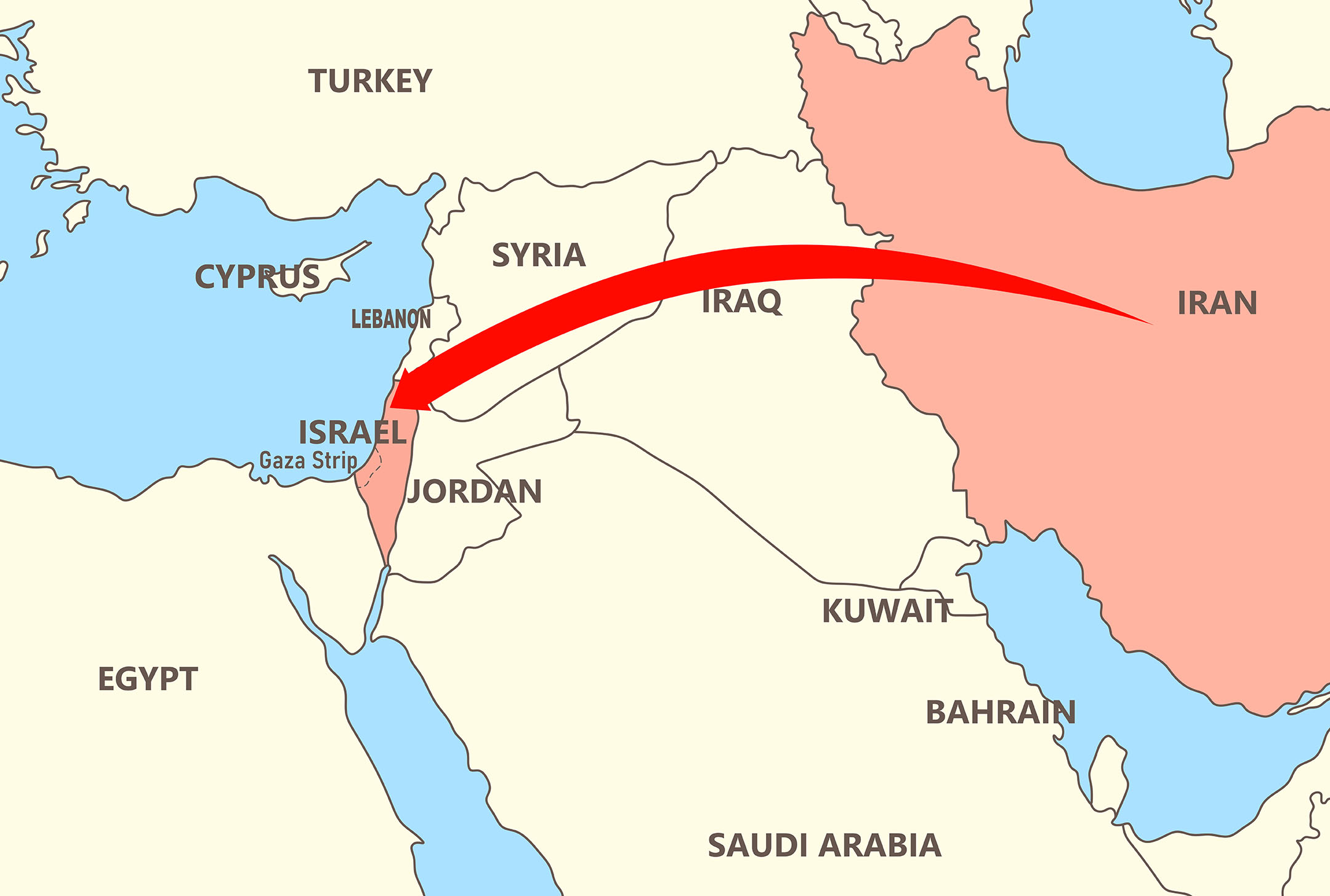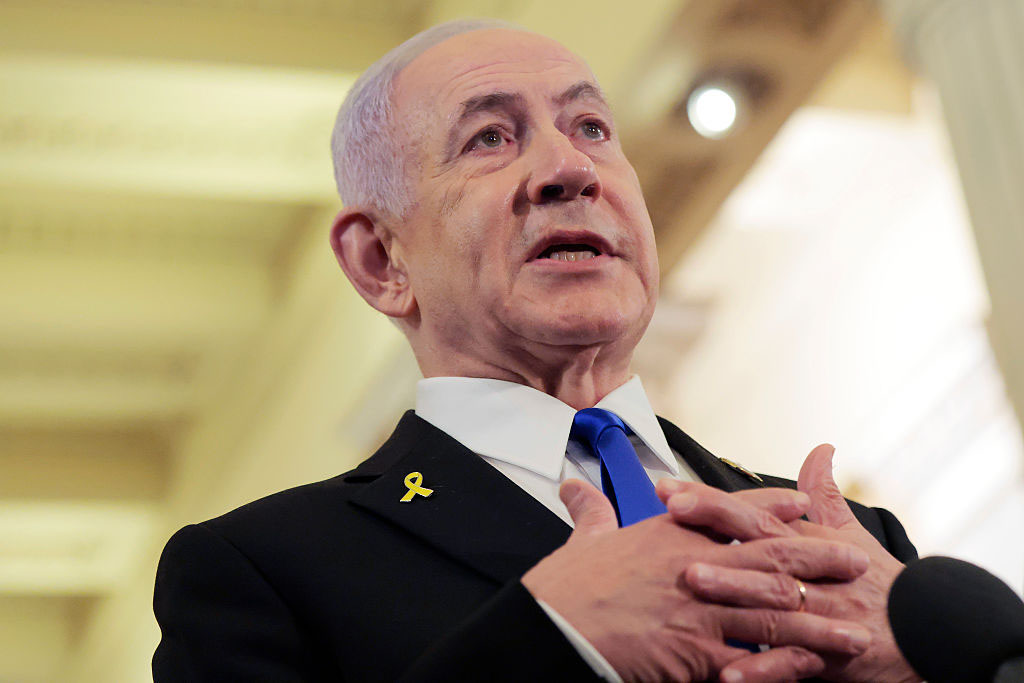
I will never forget her face. Ours was a conversation that was ultimately relegated to infamy (for me, anyways).
During the first week of college, I informed a new friend I had made in our dormitory that I was born in Iran. She paused, tilted her head to one side and asked if I meant “Iraq.”
When I told her that these were two separate countries, my new friend gently suggested that I was mispronouncing the name, “Iraq” because she was certain there was no ‘n.’
Two years later, I happily told a short-lived college roommate from the Midwest that I was preparing Persian-style kabob in our small kitchen, and she excitedly informed me that she loved European food.
Unless your search algorithm is irreversibly set to news about the latest food recalls, you may have heard that Iran and Israel are engaged in a once-unimaginable war. The United States is reportedly supporting Israel in various ways, though President Trump is still going to keep his shiny, new Qatari Boeing 747.
With that in mind, there has never been a better time for a quick refresher course on how to talk to Americans about Iran and Israel.
The Americans to whom I am referring are your lovable, non-Jewish, NASCAR-watching, hard-working, Average Joe’s, for whom buying a tub of hummus constitutes experimenting with foreign food. Lest I be accused of disparaging these good people, I will remind readers on both coasts that the average American represents the backbone of this country. Americans love freedom, and I love Americans for their love of freedom.
It should be noted that the day after I began writing this column, Thomas Friedman wrote an essay in The New York Times titled, “How to Think About What’s Happening With Iran and Israel.” Having escaped a repressive country such as Iran, I prefer not to tell people how to think, but I’m always ready to tell them how to talk.
So, in that spirit, here are a few simple tips for how to talk to the average American about Iran and Israel:
First, remind your hard-working, average American that one country is pronounced “Ee-rahn,” rather than “I ran” (as in “I ran for my life during the Iran-Iraq War”). Though the state officially goes by the name, “The Islamic Republic of Iran.” That alone should tell you something.
At this point, make sure your lovable American knows that in an Islamic theocracy, you lose your hands for stealing and your life for not behaving in accordance with official religious state law, especially if you’re a woman. Oh, and there are only three other official Islamic Republics in the world, and they are run by the fun-loving regimes in Pakistan and Mauritania.
While we’re on the subject of names, Iraq is not pronounced “I rack,” as in “I racked up enough air miles for a free trip to Mauritania.”
Again, I am not deriding my fellow Americans. But I have travelled around this extraordinary country enough to clarify that I am referring to the average American, the one who simply wants normal-priced eggs and a president who is mentally and emotionally reliable.
A president who is sharp enough to remember the names of all three countries in North America, and who doesn’t believe he or she was lowered down to Earth by the hand of G-d (though a $400 million Qatari Boeing isn’t a bad way to land back on the ground).
For what it’s worth, the average Iranian has simple dreams, too: All he or she wants is freedom, dignity, affordable bread, and a leader who is, well, normal; someone who can stand at lectern at the United Nations General Assembly and not spout genocidal rhetoric against other countries.
But in speaking to your fellow good-hearted Americans, you must also begin by ensuring they are able to identify Iran and Israel on a map.
Carefully inform your American friend that both countries are located in the Middle East and in Asia, but that they do not share a border (thankfully). Point to neighboring Iraq, Pakistan, and Afghanistan, ask your friendly American whether sharing borders with those states might be an important consideration when contemplating Iran’s friends.
Then draw a giant circle 10 times the size of Israel (around Israel) and ask your American whether the neighborhood might be slightly problematic. Now draw an invisible line with your finger from Iran to Israel. Presto — you now have a ballistic missile route from Tehran to Tel Aviv.
Next, happily inform your American that neither country is filled with sheiks or camels.
This is critical, because Americans are suspicious of failed Middle Eastern states, especially if American troops gave up their lives attempting to secure someone else’s freedom. Ensure that your American understands that Iranians are not Afghans. They’re not Iraqis. Nor Libyans. They’re educated, mostly secular, and completely fed up. Iran won’t become a failed state. Iranians can handle democracy. In fact, they yearn for it and are desperately watching every Israeli strike as if their entire free fate depends on it. And it does.
Americans tend to think that a country’s government represents its people. But the only miserable thing the Iranian regime represents is itself.
Inform your American that Iranian/Persian civilization is one of the oldest in the world, and that this 46-year-old fanatic theocracy is but a blip in Persian/Iranian history. Have a Google search related to “definition of theocracy” on hand for your democratically-minded American.
If he or she asks about the difference between “Persian” and “Iranian,” point to the cat on a can of Fancy Feast gourmet cat food and declare, “This one’s Persian.” Then point to my photo at the top of this week’s column and proclaim, “This one is Iranian and Persian (though not all Iranians are Persian), but never Arab or any nationality portrayed on screen by Sacha Baron Cohen.” We’re living through historic times and names are not of much concern.
But for many reasons, some dating back 1,400 years, the fastest way to get punched in the eye is to accidentally call an Iranian an Arab.
Next, inform your American that although Judaism dates back nearly 4,000 years and Israel is the world’s only Jewish country, most Israelis do not wear black hats, black coats, yarmulkes, or long beards. Display some Google images of young people tanning on a Tel Aviv beach. Then ask your American to guess whether the photo was taken in the U.S. or Israel. Other than the sand paddle tennis, it’s hard to tell the difference.
Now, return your inquisitive American to the original map of the Middle East, with an important reminder about the size of Iran versus the size of Israel. Remind them that Iran is roughly two-and-a-half times the size of Texas, while Texas is 35 times the size of Israel. You may confuse your American, but you’ll make Texas look good in the process.
It is imperative that your American understands that on an official state level (as opposed to rogue terrorists) Iran has hurt, maimed, and killed more Americans than any other country, whether in neighboring Iraq, or in its support of terrorists such as Hamas in Gaza or Hezbollah, which, in 1983, killed 241 U.S. Marines in Lebanon. Don’t forget to remind your friendly American where Lebanon is located on the world map.
Ensure your American knows that Iran holds the key to a new Middle East that could one day be on par with Europe. Just ask anyone who wore miniskirts in pre-revolutionary Iran during the 1970s.
If your well-meaning American votes Democratic and is concerned that strikes against Iran “reek of the right wing,” remind them that current repressive Iranian leaders make right-wingers like Trump look like AOC.
If your well-meaning American votes Republican and is concerned that America will “fight someone else’s dirty war,” remind them that not one single American soldier is safe in the Middle East under this regime. Personally, I pray that the first American to set foot on Iranian soil are us Iranian American civilians, once the country is free. I just hope there’s a kosher kabob joint in Tehran when I land after not having set foot in my former homeland in over 30 years.
Finally, if you are my lovely friend from the freshman dormitories and are reading this, something tells me that you finally understood that the country that ends with an ‘n’ is truly the one to watch.
Next year in Tehran.
Tabby Refael is an award-winning writer, speaker, and weekly columnist for The Jewish Journal of Greater Los Angeles. Follow her on X and Instagram @TabbyRefael


































 More news and opinions than at a Shabbat dinner, right in your inbox.
More news and opinions than at a Shabbat dinner, right in your inbox.